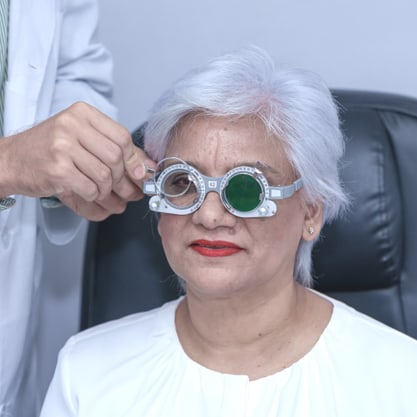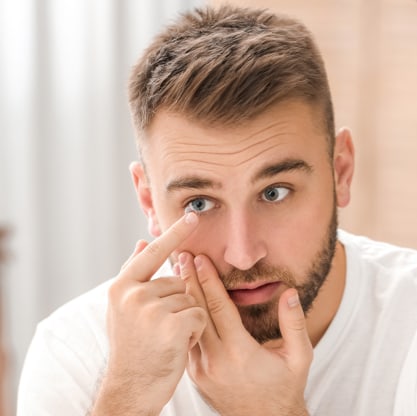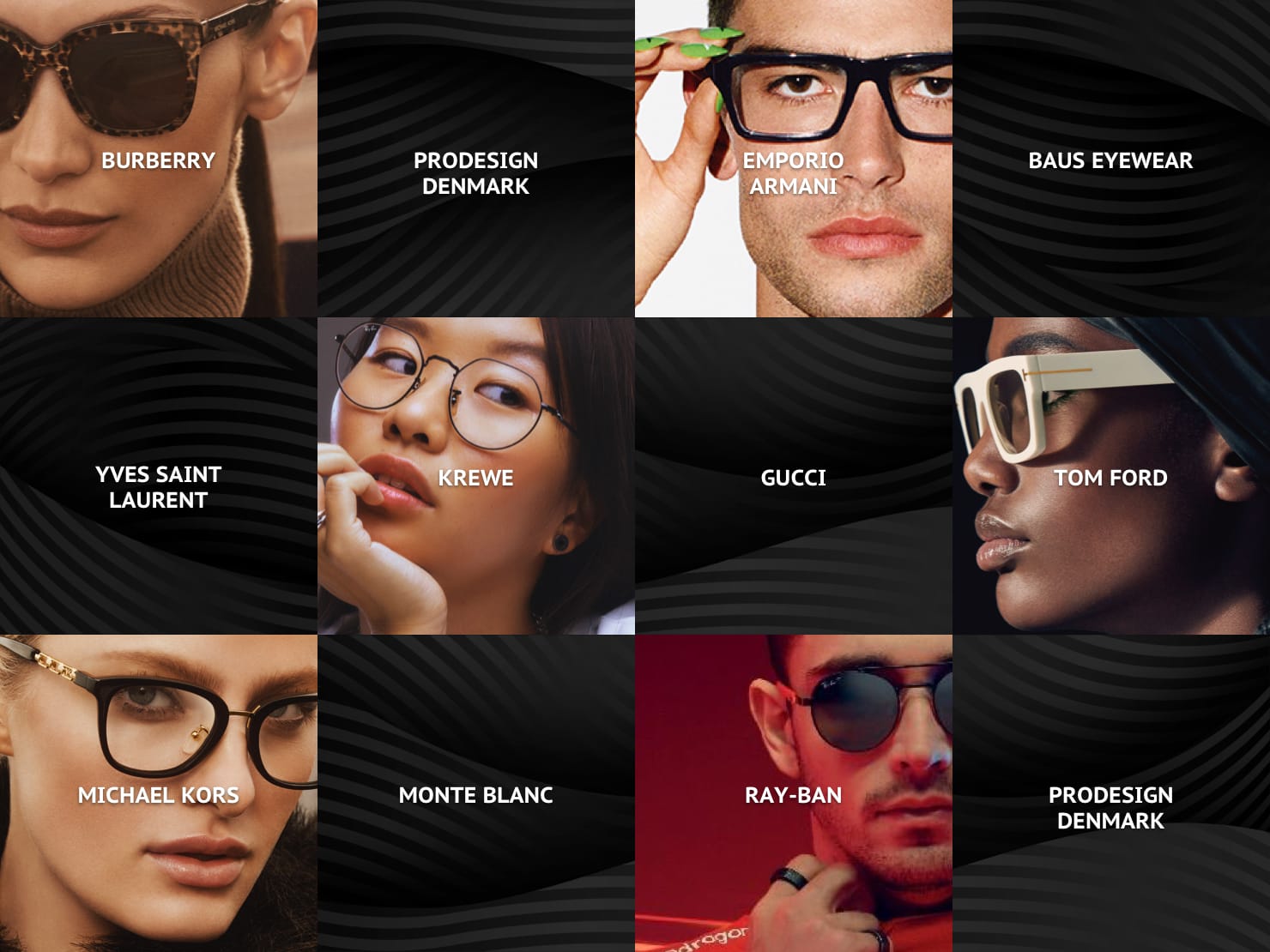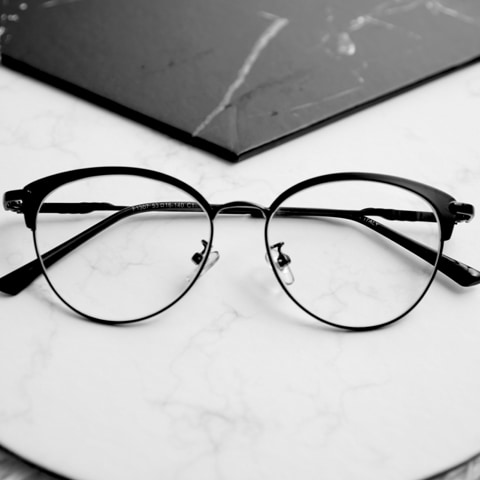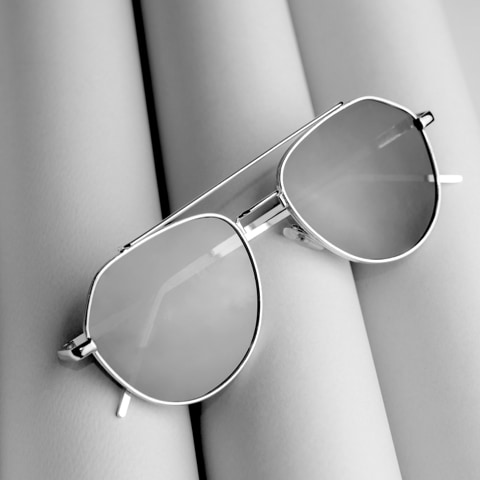Rubbing your eyes feels like a harmless, natural habit that may offer temporary relief. However, the risks to your eye health outweigh the benefits.
Consistently rubbing your eyes can damage their delicate structures over time, increasing the risk of:
- Elevated eye pressure
- Weakened cornea
- Eye infection
- Worsened allergies
- Eye injuries
If you’re experiencing consistent irritation, visit your optometrist. Your eye doctor can help identify the underlying cause and help you find true, long-lasting relief.
Think Twice Before Rubbing: How it Harms Your Eyes
Rubbing your eyes now and then might seem harmless, but frequent or forceful rubbing can lead to serious eye health issues.
For one, the skin surrounding your eyes is thinner and more sensitive than on other areas of your face. Rubbing increases your risk of breaking delicate blood vessels under the skin, which can lead to dark circles, puffiness, redness, and irritation.
Besides, rubbing your eyes isn’t always gentle. Excessive force can increase eye pressure, which can damage the optic nerve over time, contributing to serious existing conditions like glaucoma.
Consistently rubbing your eyes can weaken the cornea, increasing the risk of keratoconus. The progressive condition causes the cornea to thin and bulge into a cone-like shape, causing distorted vision that often requires corrective treatment.
The Risks of Eye Rubbing
Rubbing your eyes can have a negative impact on your eye health and vision, leading to various concerns.
Infections & Pink Eye
Even when your hands seem clean, your skin can harbour bacteria, viruses, and other contaminants. When you rub your eyes, you transfer these germs directly, increasing the risk of infections like conjunctivitis (pink eye).
Worsened Allergies
If allergies compel you to rub your eyes, you could worsen the irritation. Rubbing releases histamines, the chemical that triggers allergic responses. Flushing the irritants (allergens) is more effective at relieving discomfort.
Eye Trauma
Vigorous rubbing can cause microabrasions on the cornea and, in extreme cases, lead to more severe damage, such as corneal scratches or ulcers, which can be severely uncomfortable and require medical treatment.
What Can Cause You to Rub Your Eyes?
Most people don’t rub their eyes without reason. It feels like a natural response to irritation, fatigue (like when you first wake up), or dryness. However, just because it offers temporary relief doesn’t mean it’s a habit you want to encourage.
Here are the common reasons behind the urge to rub your eyes.
Allergies
Allergies are one of the most common reasons for itchy, irritated eyes. Pollen, dust mites, and pet dander can easily trigger allergic reactions. While rubbing may feel like a quick fix, it can worsen symptoms by releasing histamines and spreading allergens.
Allergies make your eyes more vulnerable to bacteria and irritants. Rubbing introduces germs to irritated eyes, increasing the risk of infection.
Instead, figure out what is causing the allergic reaction and carefully avoid those triggers for true, long-lasting relief.
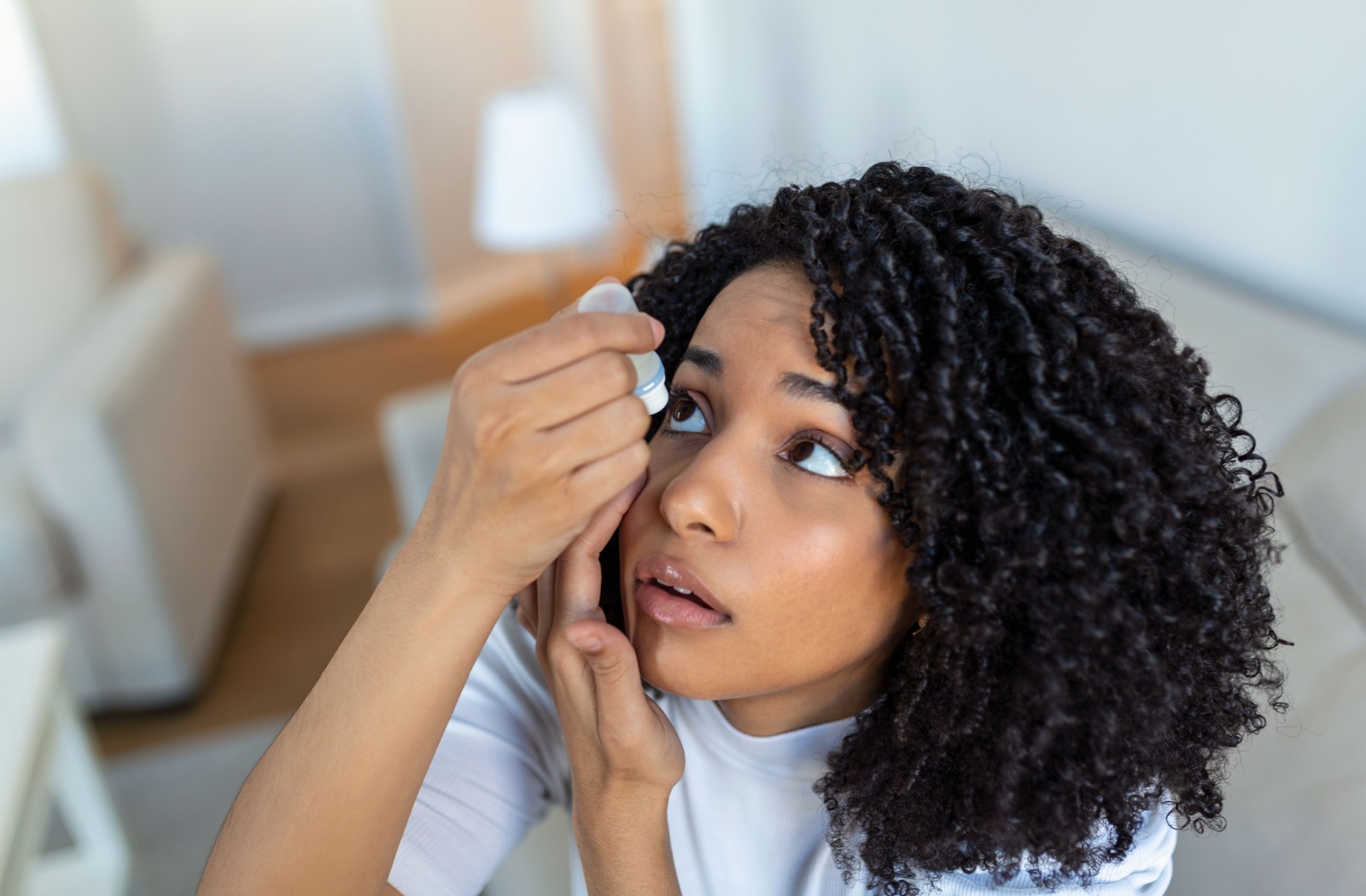
Contaminants
Never underestimate the power of external contaminants, such as smoke, dust, or chemicals. A windy day can blow dust or dirt into your eyes, causing irritation and discomfort. Your eyes may water, and your first instinct might be to rub the irritation away.
Instead of helping, rubbing can push contaminants deeper into your eyes, worsening irritation or even causing tiny scratches, known as corneal abrasions.
Minor scratches can heal quickly, but your recovery might be interrupted if you aggravate the injury. If you experience blurry vision, light sensitivity, or severe discomfort, connect with your optometrist for emergency eye care.
Contact Lenses
With proper wear and care habits, contact lenses can be safe and comfortable. They also provide a convenient break from eyeglasses.
However, even with good lean hygiene, you can still experience problems with improperly fitted lenses or not following the lens replacement schedule. You might be allergic to your contact lens solution, or your lenses could exacerbate an underlying condition, such as dry eye.
Because contact lenses sit directly on the eye’s corneal surface, wearers often experience dryness or the sensation of a foreign object in their eyes, which can make rubbing tempting.
Rubbing can displace your contact lenses, irritate the cornea, or damage your lenses. Worse, it can trap debris between your lens and cornea, leading to abrasions or infections.
If the irritation feels like it stems from your contact lenses, take a break from wearing them for a few days and consult your optometrist.
Eye Infections
Eye infections are never fun, and they can develop simply by introducing germs to your eye from your hand.
Make it a habit to wash your hands thoroughly before touching your eyes. Avoid touching your eyes unless necessary, like inserting your contact lenses, to help prevent germs from entering your eyes.
Conditions like conjunctivitis, blepharitis, and styes can cause irritation and swelling, making rubbing seem like a natural reaction.
If an eye infection develops, avoid touching your eyes altogether. Rubbing spreads bacteria, prolongs the healing process, and increases the risk of infecting your other eye.
Instead, schedule a visit with your optometrist. They can accurately diagnose the infection and develop a treatment plan tailored to your unique needs.
Dry Eye Disease
When your eyes don’t produce enough tears (or the right kind of tears) to stay properly lubricated, the surface of your eyes can become dry, irritated, and inflamed. This discomfort can trigger an intense urge to rub your eyes for temporary relief.
Dry eye symptoms like burning, stinging, grittiness, and itchiness can all contribute to the need to rub your eyes. Rubbing can provide temporary relief, but it doesn’t solve the problem. In fact, rubbing your eyes can make things worse by adding pressure to already irritated tissues, increasing inflammation, or even damaging the delicate structures around your eyes over time.
Dry eye disease is more common than many people realize, but at Sage Eyecare, we can help offer specialized treatment options if you’re experiencing dry eye disease.
How to Safely Soothe Your Eyes: Alternative Relief Methods
Although we’re hesitant to suggest that rubbing your eyes offers anything but temporary relief (think of the negatives), there are safer ways to soothe your eyes:
- Artificial tears mimic natural tears & help wash away irritants, hydrate the eye surface, & offer relief without physical contact
- Look for preservative-free if you experience chronic irritation or dry eye. At Sage Eyecare, we carry specialized drops designed specifically for dry eye relief that may be more effective than over-the-counter brands.
- Blinking exercises help you rehydrate the eyes by spreading natural tears evenly across the eye’s surface
- Screen time can interrupt blink patterns, so take active breaks from any screen work & give your eyes a moment to rest & refocus
- Cold compresses can help constrict blood vessels to reduce puffiness, soothe irritation, & minimize discomfort
- Cold can help with inflammation & redness, but moist heat is generally more effective for alleviating dryness
- Omega-3 supplements can help improve the quality of your tear film and support lasting comfort. Sage Eyecare offers high-quality Omega-3 options as part of our comprehensive dry eye toolkit.
Advanced In-Office Dry Eye Treatments
For patients with chronic or more advanced dry eye disease, we offer clinically proven technologies at Sage Eyecare:
- Forma by InMode (Radiofrequency)
- Forma is a noninvasive radiofrequency (RF) treatment that uses precision-controlled energy to target the meibomian glands in your eyelids, improving oil production and restoring tear film stability. Originally developed for skin rejuvenation, Forma is Health Canada–certified for treating dry eye caused by Meibomian Gland Dysfunction.
- Lumecca IPL (Intense Pulsed Light)
- Lumecca is an FDA-approved IPL device trusted for over 25 years to treat rosacea and superficial skin concerns. It’s also used to treat dry eye by reducing inflammation caused by ocular rosacea and other vascular-related triggers. The broad-spectrum light targets pigment and hemoglobin, calming redness and improving the skin and lid surface around the eyes.
If you’re rubbing your eyes often or struggling with ongoing irritation, don’t ignore the signs. Book an appointment at Sage Eyecare today to receive a customized dry eye care plan tailored to your needs.
Take Comfort in Better Habits
Your eyes work tirelessly to support your daily endeavours. Taking care of them starts with small but impactful changes, such as avoiding the harmful habit of rubbing your eyes.
When you’re experiencing persistent eye irritation or discomfort, your eye care team can help you feel meaningful relief. Connect with our Sage Eyecare team in Mississauga to schedule an appointment. Together, we can help you identify the root cause of your symptoms and find effective solutions.




